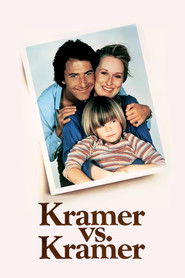It's always enjoyable to see Dustin Hoffman, but just like its binomial title, Kramer vs. Kramer is only constructed of two broad-brush tones: the first half is a gentle comedy based around the questionable premise of what if a man had to parent?; and the second is a "Father's Rights" narrative about the unfairness of the divorce courts against men. No doubt if/when I read more about the making of this movie, I'll learn far more about one of the writers' grievances than I really wanted to. Perhaps best read as part of conservative backlash against the legislative and social gains of second-wave feminism.
Fascinating that Roger Ebert's praise of the movie orients around the idea that it's scrupulously fair to both parties. To him, the movie "wouldn’t be half as good as it is — half as intriguing and absorbing — if the movie had taken sides."
Avery Corman, who wrote the 1977 novel on which Benton based his screenplay [said] that his novel sought to expose the “toxic rhetoric” of feminists; he felt they had viewed men as “a whole bunch of bad guys.” The feminists were “too overheated about men,” he said. Kramer vs. Kramer was “an attempt to redress a wrong,” to show what feminists were really like, while at the same time showing that men could parent just as well as women. Corman’s mission with the book, thus the film it seems, was to address how feminists could give up their so-called womanly duties in the home, abandon their family, yet still retain the legal rights over their children. Moreover, he portrays Joanna as indecisive and irresponsible, whereas Ted is shown to be a worthy father for their child. And while single fathers were not commonplace[,] Corman is quick to congratulate Ted for taking on his parenting roles (for the first time since the child was born, apparently), whereas there’s no consideration of Joanna’s role as a parent. It’s expected of her; it’s exceptional for him. [And] when Joanna is pressed to get a job to prove she’s a suitable parent, she easily lands a career that earns more than her ex-husband, but she hardly receives any credit for that. It’s a film rooted in male exceptionalism.[…]
Streep refused to play Joanna unless Benton made changes to the script. Streep demanded that Benton alter the character from Corman’s book, which apparently portrayed Joanna as even more awful than the film treats her.
[…]
Kramer vs. Kramer outperformed other films from 1979, including Alien, Apocalypse Now, Rocky 2, and Star Trek: The Motion Picture. And yet, given its subject matter, one suspects that if the film were released today, it would be relegated to Netflix or the Lifetime network.
— Brian Eggert (Deep Focus Review)

